Bone Marrow Transplant Cost in Delhi
Unlock Exclusive Discount : Your Gateway to Premium Healthcare with Medsurge India Health Value Card.

Unlock Exclusive Discount : Your Gateway to Premium Healthcare with Medsurge India Health Value Card.


A bone marrow transplant, also known as a stem cell transplant, is a medical procedure that introduces healthy blood-forming stem cells to replace damaged or diseased bone marrow. It is commonly used to treat cancers like leukemia, multiple myeloma, lymphoma, and various blood disorders.
Previously referred to as “bone marrow transplant” due to stem cell extraction from bone marrow, modern practices now often collect stem cells from the bloodstream. In India, the procedure includes two main types: autologous transplants, using the patient’s own cells, and allogeneic transplants, using donor cells. Understanding the bone marrow transplant cost in Delhi is essential for patients seeking affordable, world-class care. Here we will share detailed info on the cost of bone marrow transplant in Delhi.
Bone marrow transplant Cost in Delhi starts from Rs 15, 00,000 (17,000 USD) to and can go up to Rs 40, 00,000(46,000 USD) depending on the type of bone marrow transplant. The price associated with bone marrow transplants differs based on the type, with autologous transplants typically being more affordable than allogeneic transplants. This is primarily because autologous transplants utilize the patient’s own bone marrow rather than relying on a donor.
While the cost of bone marrow transplant in Delhi is less compared to other countries there will be other factors that can affect the cost of the final treatment cost. Here are some key factors that can affect bone marrow transplant cost in Delhi:
1. Type of Transplant: The transplant may involve the use of the patient’s own cells (autologous) or cells from a donor (allogeneic), with the latter typically being more expensive due to donor-related processes. The source of the donor, whether a family member or an unrelated match, can also significantly impact the overall cost.
2. Patient Condition: The cost may vary depending on the severity of the disease and the patient’s overall health. Pre-existing medical conditions or complications may require additional treatments, increasing the total expenses.
3. Hospital and Medical Team: Renowned hospitals with advanced facilities and highly experienced transplant teams often charge higher fees, reflecting the quality of care provided. Hospitals with international accreditations may also have more structured and specialized transplant processes, affecting overall costs
4. Location: The geographical location of the hospital significantly influences transplant costs, with metropolitan cities often charging higher due to advanced infrastructure. In contrast, smaller cities may offer more affordable options but may lack specialized facilities.
5. Additional Treatments: The need for chemotherapy or radiation therapy, either before or after the transplant, can add significantly to the overall cost. The number of sessions and the specific type of therapy required will further influence these expenses.
6. Pre-Surgery Tests: Initial physical examinations and basic diagnostic tests are essential to assess the patient’s readiness for the transplant, contributing to the overall cost. These tests help identify any risks and ensure the procedure is safe and effective.
7. Specific Tests: Advanced diagnostic tests, such as CT scans, ultrasounds, and color Doppler scans, play a crucial role in planning the transplant and add to the treatment cost. The frequency and necessity of these tests during the procedure and recovery phases can further increase expenses.
8. Follow-Up Sessions: Regular follow-up appointments are essential to monitor the patient’s progress and detect any potential complications. The cumulative cost of these sessions, including consultations and necessary tests, can influence the overall expenses.
9. Immunosuppressant Injections: Immunosuppressant injections are often required to prevent the body from rejecting the transplanted cells, adding to the overall cost. The duration and dosage of these injections will depend on the patient’s recovery progress and medical condition.
Several factors mentioned earlier can affect the total cost of a bone marrow transplant in Delhi. Nevertheless, even with these additional expenses considered, the overall price of a bone marrow transplant cost in Delhi remains considerably lower than in many leading countries around the globe. As a result, international patients may experience savings ranging from 40% to 60% compared to the costs in their home countries.
Bone marrow transplant (BMT) is a targeted therapeutic approach for patients with certain cancers or other health issues. The process involves harvesting stem cells from the bone marrow, which are then purified through a filtration method.
After this purification, the stem cells are either returned to the original donor (the patient) or administered to another recipient. The main goal of BMT is to deliver healthy bone marrow cells to a patient whose own bone marrow has been treated to remove abnormal cells.
The goal of a bone marrow transplant is to offer a potential cure for a range of diseases and cancers. When the levels of chemotherapy or radiation needed to combat cancer are so high that they could permanently damage or destroy a patient’s bone marrow stem cells, a transplant is essential. Furthermore, these procedures may also be necessary if the bone marrow has been adversely affected by a medical condition.
A bone marrow transplant serves several purposes:
It is crucial to thoroughly assess the potential risks and benefits through an in-depth conversation with your healthcare provider and specialists in bone marrow transplants before proceeding with the procedure.
Bone marrow transplantation is most commonly advantageous for the following diseases:
– Leukemias
– Severe aplastic anemia
– Lymphomas
– Multiple myeloma
– Immune deficiency disorders
– Certain solid-tumor cancers, though this is less common
It is essential to recognize that the manifestation of these diseases can differ significantly among individuals, and not all patients with these conditions may be appropriate candidates for a bone marrow transplant.
Know More:- Bone Marrow Transplant Cost in Apollo Hospital
Bone marrow transplants can be classified into several categories based on the donor’s identity. The main types of bone marrow transplants are:
This procedure involves the patient serving as their own donor. Stem cells are harvested from the patient, either through a bone marrow extraction or apheresis (a technique for collecting peripheral blood stem cells), then stored and later reinfused into the patient after undergoing intensive treatment. This approach is often termed rescue rather than a traditional transplant.
In this scenario, the donor is genetically compatible with the patient. Stem cells are collected from a donor who shares a genetic match, often a sibling, using either bone marrow extraction or apheresis. Other potential sources for allogeneic transplants include:
The process entails gathering stem cells from an umbilical cord right after the delivery of a newborn. These stem cells are recognized for their ability to differentiate into mature, functional blood cells more swiftly and efficiently compared to those obtained from the bone marrow of another child or adult. The collected stem cells are subjected to testing, typing, and counting, and are preserved through freezing until they are needed for transplantation.
Know More:- Bone Marrow Transplant Cost in Fortis Hospital
Your doctor will assess whether a bone marrow transplant is appropriate for your condition. This will involve a physical examination and various tests to evaluate your blood and the functionality of your heart, lungs, liver, and other essential organs.
If a transplant is considered a feasible option, your physician will explain the specific procedure you will undergo and what to expect throughout the process.
Process of Bone Marrow Transplant
Patient undergo numerous test for the bone marrow transplant, this can include:
A suitable donor for a bone marrow transplant is characterized by having human leukocyte antigens (HLA) that closely match those of the recipient. HLA are proteins present in the blood. Medical experts assess HLA compatibility by evaluating blood test results from potential donors and recipients, a method referred to as HLA typing. The transplant can be performed in two ways: an autologous transplant or an allogeneic transplant.
The Transplant Phase begins with the critical step of stem cell collection. For patients undergoing an allogeneic transplant, where cells are sourced from a donor, the donor may either have a surgical procedure to harvest bone marrow or undergo apheresis to collect peripheral blood stem cells.
Bone marrow harvesting is performed under general anesthesia, requiring several small incisions in the pelvic bones to extract the marrow. In contrast, peripheral blood collection involves administering growth factor injections to the donor over several days to stimulate stem cell production, followed by the use of a specialized blood filtering device to collect the stem cells.
Once collected, the stem cells are processed in a laboratory, where they undergo rigorous testing to evaluate cell viability and ensure an adequate quantity of stem cells is present. It may also be necessary to purify the cells to remove excess red blood cells or plasma, and in some cases, specific T-cells may be eliminated to reduce the risk of graft-versus-host disease.
For autologous transplants, which utilize the patient’s own cells, the cells are typically preserved by freezing with specialized preservatives until needed. The administration of stem cells occurs through a central venous catheter, similar to a blood transfusion.
This infusion process usually lasts from 30 minutes to several hours, depending on the volume of cells being infused. During this time, nursing staff closely monitor vital signs and remain alert for any potential adverse reactions. Patients may experience side effects such as nausea, chills, or chest discomfort during the infusion, all of which can be managed with appropriate medications.
Also Read:- Chemotherapy For Bone Marrow Transplant
The engraftment phase typically begins between days 10 and 28 following a transplant, indicated by a gradual increase in white blood cell counts. This development is a positive indicator; however, patients require close observation as their new immune system is still maturing. There is a significant risk of complications, particularly for those who have received an allogeneic transplant, as they may be susceptible to acute graft-versus-host disease (GVHD).
As patients move beyond the initial month, the emphasis shifts to long-term recovery. While monitoring becomes less frequent, patients are still expected to attend regular check-ups for at least a year. It is essential for patients to follow stringent protective measures, including:
– Wearing masks in public environments.
– Avoiding crowded areas and contact with sick individuals.
– Adhering to a strict diet to minimize the risk of foodborne illnesses.
– Taking prescribed medications, especially immunosuppressants for those who have had allogeneic transplants.
– Participating in regular screenings to detect potential complications.
The complications that may arise from a bone marrow transplant can vary significantly based on several factors, including:
– The specific type of marrow transplant performed
– The underlying disease that necessitated the transplant
– The preparative regimen used prior to the transplant
– The recipient’s age and overall health status
– The level of tissue compatibility between the donor and recipient
– The presence of severe complications
It is crucial to recognize that the complications associated with a bone marrow transplant can differ greatly among individuals, with each person potentially displaying unique symptoms.
Understanding the treatment and care associated with a bone marrow transplant, as well as its cost of baone marrow transplant in Delhi, is crucial for making informed decisions. Bone marrow transplants are life-saving procedures that require meticulous planning, specialized care, and advanced medical expertise. Factors like the type of transplant, hospital selection, additional treatments, and follow-up care significantly influence the overall cost. Being aware of these details allows patients and their families to prepare both medically and financially, ensuring the best possible outcome during a challenging health journey.
We at Medsurge India is dedicated to guiding patients every step of the way, providing comprehensive support to ensure a smooth and hassle-free experience. From helping patients connect with Delhi’s top hospitals and experienced transplant specialists to offering assistance with cost estimation, travel arrangements, and post-treatment care, Medsurge India is committed to making quality healthcare accessible. With personalized care packages and 24/7 assistance, we strive to empower patients and their families to focus on recovery while we handle the logistics.

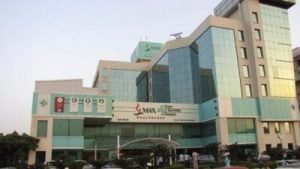
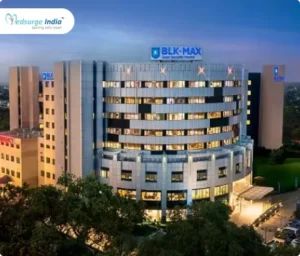
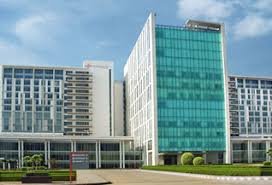
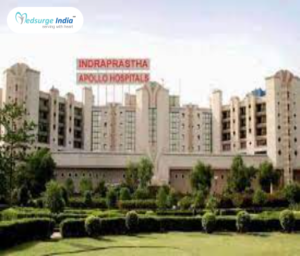
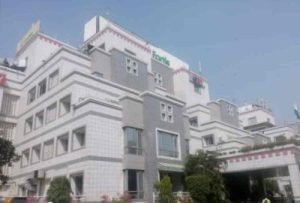

By using our site, you agree to our Terms and Conditions, Privacy Policy and Refund Policy. Medsurge India provides reliable healthcare information and treatment options to support informed decision-making. Our content is designed to support and complement the guidance of your treating doctor, helping you feel informed and confident throughout your healthcare journey. We also Accept International Payments.

Copyright © 2025 NSM ONLINE SOLUTIONS PRIVATE LIMITED. All rights reserved.